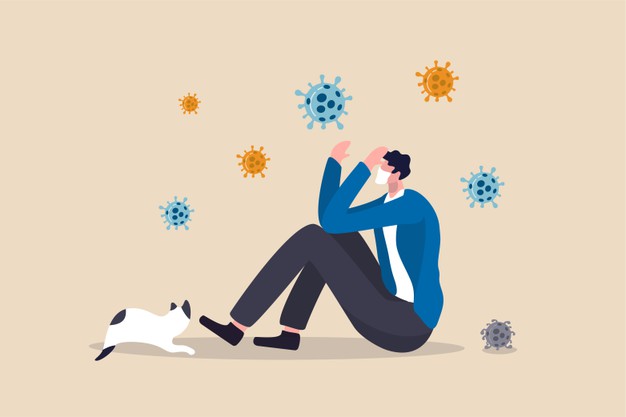
Secret to longevity, does it lie in our diet?
September 23, 2021
Coffee or Tea consumption by pregnant women, what do we know?
January 18, 2022Since early 2020, corona virus disease 2019 (COVID-19) which is caused by severe acute respiratory syndrome corona virus 2 (SARS-CoV-2) has been declared a pandemic. One of the particular signs of COVID-19 is anosmia (complete loss of sense of smell) and hyposmia (partial loss of sense of smell). Sense of smell is vital for determining the flavor of foods and beverages. Diminished smell sensitivity can influence food selection and compromises safety from food poisoning and toxic agents.
Studies conducted to assess clinical course or prognosis of COVID-19 related anosmia
It was required to further investigate the time course and reversibility of COVID-19 related olfactory disorders (olfactory nerve pass from nose to the brain and contain receptors that make smelling possible), as it may persist for prolong period negatively impacting patients’ lives.
Thus, observational studies were conducted with an objective to clarify the clinical course and prognosis (the outcome of the disease) of a group of patients with Covid-19 related anosmia. The patients were followed for 1 year during which repeated olfactory function evaluations were performed.
For the studies, a total of 97 patients (67 women [69.1%]; mean age of the participants 38.8 years) with PCR (polymerase chain reaction) proven COVID-19 with acute smell loss (beyond 7 days) , from April 2020, were followed over the course of I year. [PCR is a diagnostic test for COVID-19]
As the 97 patients were evaluated 51 participants underwent both subjective and objective olfactory tests; whereas 46 participants underwent subjective assessments alone.
[Subjective assessment requires a conscious response on the part of examinee such as self-reported smell.
Objective tests assess involuntary reactions, such as altered (nervous system) activity.]
Findings from studies
It emerged through the studies that 96.1% of the participants of the study with COVID-19 related anosmia objectively recovered by 12 months. However, at 6 months follow-up it was observed that only 85.9% of the participants had recovery.
What we know now?
The findings of this study has enabled researchers to conclude that persistent COVID-19 related anosmia has an excellent prognosis (likely outcome or course of the disease) with nearly complete recovery at 1 year. They further specified that their study mainly consisted of women and younger patients (<50 years old), both of which are factors positively associated with full olfactory recovery. Data on long-term outcomes are needed as clinicians managing with an increasing number of people with post-covid syndrome, will help alleviate patients’ concerns relating to impact of this infection.
[Post-covid syndrome or long covid is a term referring to symptoms that lingers for weeks or months beyond initial infection.]
REFERENCE:
Clinical Outcomes for Patients With Anosmia 1 Year After COVID-19 Diagnosis
https://jamanetwork.com/journals/jamanetworkopen/fullarticle/2781319






